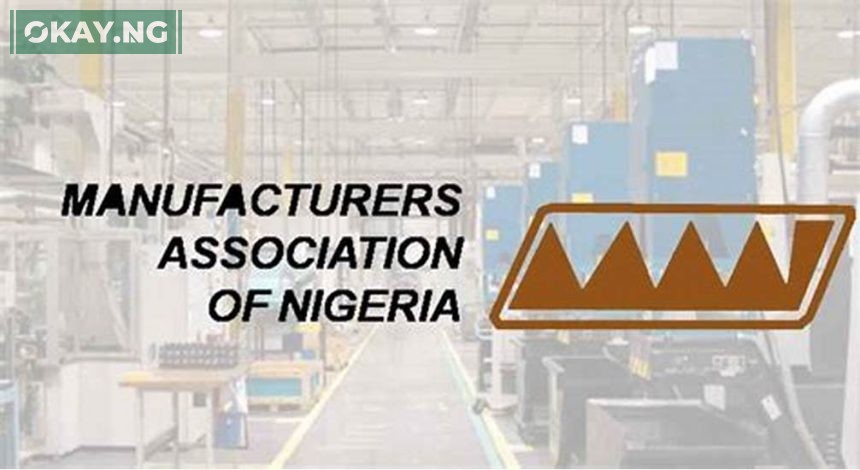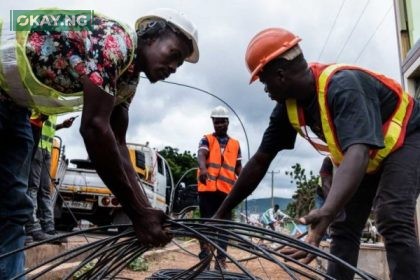The resilience of Nigeria’s manufacturing sector is being severely tested as crippling grid failures and escalating energy costs force businesses to shoulder an astronomical N1.11 trillion in alternative energy expenses in the past year. This staggering figure, a 42 percent surge from the N781.7 billion recorded in 2023, paints a stark picture of the debilitating impact of the nation’s energy crisis on production and overall economic health, according to the Manufacturers Association of Nigeria (MAN) Economic Review for the Second Half of 2024.
The report underscores a concerning trend, highlighting the government’s persistent struggles in addressing the deteriorating economic landscape. Soaring inflation, an oppressive cost of doing business, and the chronically unreliable power supply are collectively stifling production output, a reality starkly reflected in the year’s economic data.
The pain is particularly acute following the over 200 percent hike in electricity tariffs for Band A consumers last year. This policy, intended to improve power supply, has instead significantly inflated operational costs for manufacturers, triggering widespread outcry over its detrimental impact on productivity. While power availability saw a marginal improvement in some areas, the persistent specter of frequent grid collapses – at least 12 nationwide in the reported year – continues to necessitate reliance on costly alternatives.
The confluence of an unreliable national grid and the surging prices of essential alternative energy sources like gas, diesel, and petrol has propelled the total expenditure on self-generated power to a staggering N1.11 trillion. A closer look at the data reveals a dramatic escalation throughout the year. From N404.8 billion spent in the first half of 2024, this figure ballooned by 75 percent to N708.07 billion in the latter half. This represents an almost 1,475 percent increase compared to the N77.2 billion spent on alternative energy just four years prior in 2021.
“The sheer magnitude of this increase in energy expenditure underscores the unsustainable burden Nigerian manufacturers are carrying,” states an excerpt from the MAN report. “It directly erodes profitability, hinders expansion, and ultimately impacts the prices of goods for the average Nigerian consumer.”
Read Also: Manufacturers’ Confidence in Nigeria: A Delicate Balance Between Optimism and Reality
The burden is not evenly distributed across sectors. The food, beverage, and tobacco industry bears the heaviest load, incurring a massive N229.41 billion in alternative energy costs, a significant jump from the N182.76 billion spent in 2023. The chemical and pharmaceutical sector also witnessed a doubling of their energy expenses to N208.68 billion, while the non-metallic mineral products sector experienced a substantial 33.7 percent increase, reaching N118.49 billion. Even the textile, apparel, and footwear industry, often operating on tighter margins, saw their alternative energy costs quadruple to N26.45 billion in 2024.
Segun Ajayi-Kadir, the Director General of MAN, paints a concerning picture of the broader economic implications. “The subdued real GDP growth reflects the persistent headwinds of rising production costs, volatile exchange rates, and weakening consumer demand,” he explains. The surge in inflation to 34.8 percent by the end of 2024 has further diminished purchasing power and amplified operational expenses for businesses.
Adding to the manufacturers’ woes, the Central Bank of Nigeria’s (CBN) aggressive monetary tightening, which saw the Monetary Policy Rate (MPR) climb to 27.5 percent, has significantly inflated borrowing costs, effectively stifling expansion plans and new investments. This challenging economic environment has also led to a significant 87.5 percent surge in unsold finished goods, reaching a staggering N2.14 trillion in 2024, primarily driven by weak consumer demand and escalating production costs.
The impact on employment is also a cause for concern. While the sector saw a marginal net increase of 16,820 jobs in 2024, the number of employees leaving manufacturing companies rose to 17,949, indicating ongoing labour mobility driven by economic uncertainties and skill migration. Year-on-year, job creation in the sector fell by a significant 37.83 percent.
Despite these significant challenges, the report offers a glimmer of hope. Capacity utilization saw a marginal improvement to 57 percent in 2024, and real manufacturing investment witnessed a 19.4 percent increase in the second half of the year compared to the first, suggesting a cautious resumption of capital expenditure by some manufacturers.
However, the overarching message remains clear: Nigeria’s manufacturing sector is battling an energy crisis of immense proportions. The exorbitant cost of alternative power is not only eroding the bottom lines of businesses but also threatening the long-term viability and competitiveness of the sector. Addressing the fundamental issues of grid reliability and energy affordability is now more critical than ever to unlock the true potential of Nigerian manufacturing and foster sustainable economic growth.












